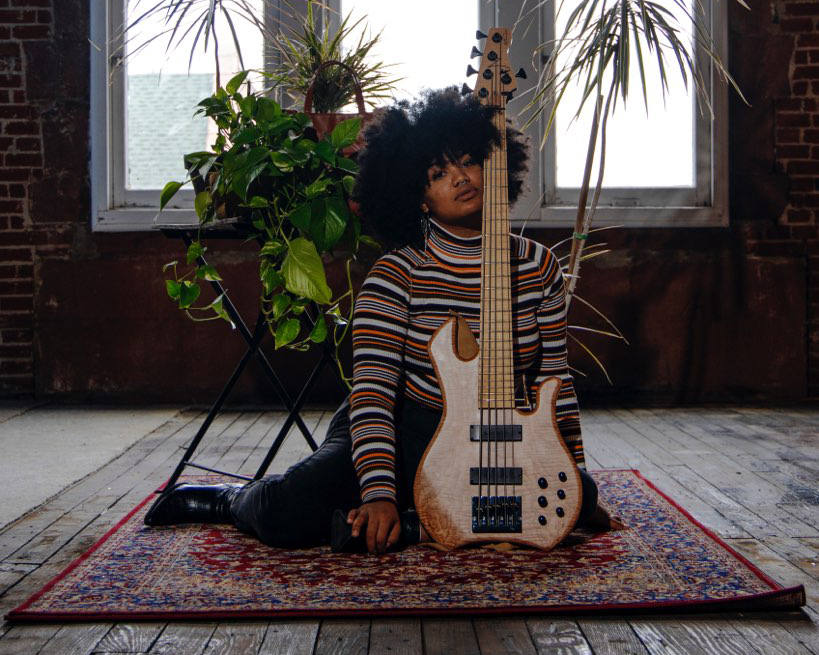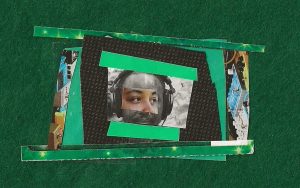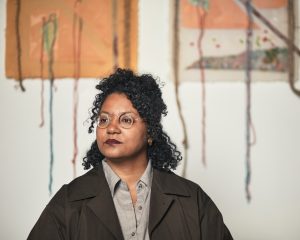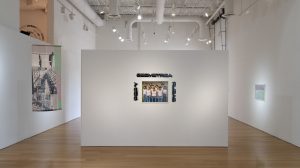Tonina Saputo is an out-of-the-box musician who doesn’t know how to exactly define herself or her music. Playing the upright bass, she might tell you she’s folk, but she could change her mind. Either way, she knows how to pull a crowd here in St. Louis, Missouri.
“This is my third,” “This is my fourth Tonina concert,” or, “I’ve lost count,” are pretty common phrases one might hear entering a Tonina set.
I went to my first (socially-distanced) Tonina concert in a sea of seasoned vets in the summer of 2020. I had never heard of her, but like the honest concert go-er I am, I made sure to listen to her music before. I was transfixed with her bold tones and spicy flare—and not because she sings in Spanish, but because her Latin music techniques are obviously brought into her English songs. She definitely brings a unique song and style to the St. Louis music scene, which she describes as “supportive” and “close-knit”. Her albums and singles go back and forth between strong alternative-like buzzes, flowery vocals, and heavy-bass thuds.
Tonina isn’t your regular millennial singer-songwriter. Of course, some of her songs are about her experiences and life, but her discography isn’t covered in her personal heartbreaks, triumphs, and tribulations—she writes about fictional characters. Through her avid reading, she builds many of her songs off of characters in the stories she has immersed herself in.
I asked Tonina about her music life in St. Louis, her sound, and her thoughts on categorization in a music industry where the lines are blurry and the musicians are hungry.
The following interview has been edited for clarity.
* * *
Meghana Patnana: So how are you? How has your life been since the beginning of the world shut-down?
Tonina Saputo: It’s been tough. Financially, you’re like, oh, how am I gonna pay rent this month? You know, it was hard in the summertime because that’s [usually] the spring and summer tour, and I was going to go to a bunch of different countries that I always wanted to go to. We had plans. But obviously, that didn’t happen. It just hurt a lot. But we adapted and we took this time to write and work on the next album. So it’s kind of like a blessing, because we wouldn’t have normally had this time to write and really learn new styles and stuff. So that’s mainly what we’ve been doing as a band. But yeah, it’s been shitty, actually, for everyone.
MP: That’s great to hear that you were able to make something good out of this time–and something positive, for yourself. Not many people can do that right now, for many reasons. I’d like to start with an introduction, so feel free just to introduce yourself any way you like, musician or not.
TS: I guess you could say I’m a musician, composer, songwriter. That’s usually what I say. For now. I don’t really know what else to call myself, really.
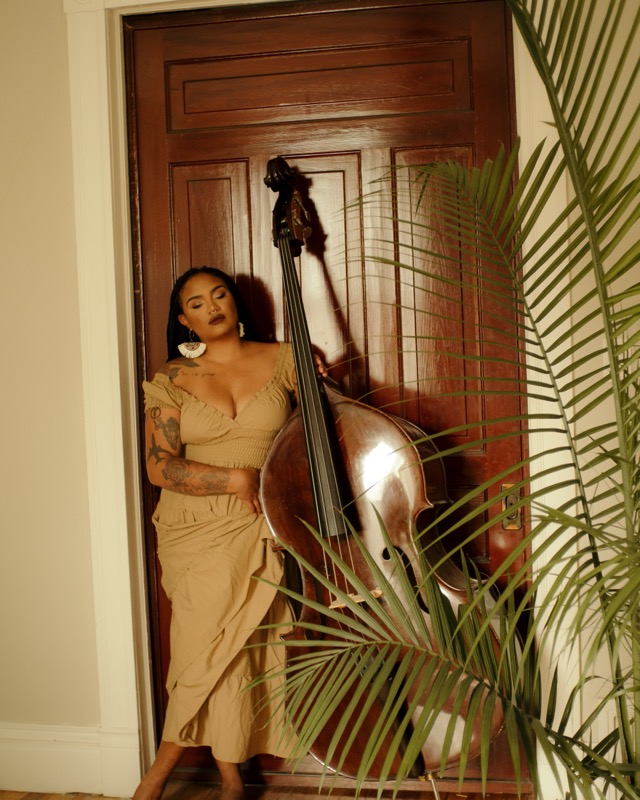
MP: Okay, that’s probably the hardest question to answer. But we can start off with that you’re a bassist, right?
TS: Yes.
MP: So tell me a little bit about how you got into it–not being a musician, necessarily. I know that’s hefty and a bit intimidating, so let’s talk about you and the instrument.
TS: I’m the youngest of eight and all my siblings are musicians. The sister closest to me was a violinist. I always wanted to play violin when I was younger because of her, but I knew she was always going to be better than me. So, I just decided to do the complete opposite and choose the bass. I was pretty fortunate to go to a school district that really valued the arts. They introduced us [to] string instruments and band instruments. So, during that time, we had a day where we could just, like, test out a bunch of instruments and meet members of the St. Louis Symphony and shit. I just fell in love with the sound and my dad told me not to do it, so I did it. I started around eight years old, and I’ve been with it ever since.
MP: That’s pretty cool–a funny way to rebel. Did you pick up any other instruments along the way?
TS: [When] I was six years old, my uncle, who is a St. Louis Bluegrass musician, introduced me to the guitar, but I was not having it. It was, like, way too many strings. And the book he gave to me along with it didn’t make any sense to me. So I was just, like, I can’t do this. I was “instrument-less” for two years, until I met the bass.
MP: So you have quite a musical family in St. Louis. Were you born and raised here?
TS: I was born in San Diego, but did the majority of growing up in St. Louis.
MP: What is the St. Louis music scene like?
TS: It’s pretty close knit. I feel like–with any community, really–everyone knows each other for the most part. It’s pretty experimental. There’s a bunch of different genres here. I think we have an amazing hip hop [and] jazz scene. And as far as indie music [goes], we have a bunch of that. So that’s pretty cool to see and refreshing [to] be a part of. I think there’s a lot of talent here. There’s just zero industry. I feel like you can only get so far, staying here.
MP: Would you say that’s the hardest part of being in St.Louis as a musician?
TS: Absolutely. I’m only here because of the pandemic, so I kind of feel “fake” saying this, but the arts are nurtured [here]. We have a supportive community of people that will go out and see live music and support you, but you’re gonna be playing for the same audience. Whereas in New York or LA or Chicago–bigger cities–there’s just a bigger population, so there’s more venues to play. There’s just different communities and way more people in general. So for exposure, it makes it easier to succeed. So that’s the next move–to move.
MP: Before I ask you where you want to move, what’s the best thing about St. Louis and the music scene here?
TS: I feel like it’s pretty supportive, that’s the best part. And it’s cheap to live here. I think it’s a great place to be based. I mean, geographically, as far as the U.S. is concerned, it’s a great place to be based if you’re broke and want to go on tours. We’re centrally located in the United States. It’s a good place to start out [and] learn about your craft.
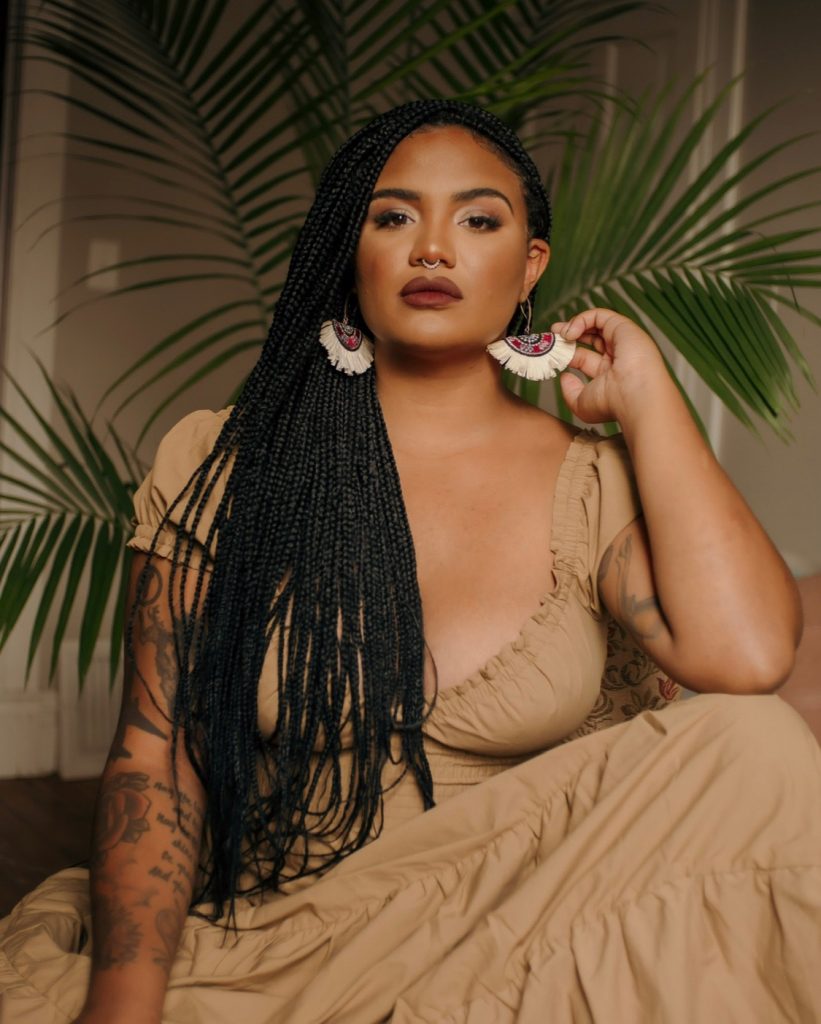
MP: That’s good to hear. So where are you looking to be after this pandemic?
TS: I would love to move to Europe, but after St. Louis, I’m just not sure. I want to get out of here.
MP: Why Europe?
TS: I would say [Europe is] appreciative of various genres of music. We’re appreciative, but, in the U.S., I find that more people will only buy a ticket to people they’ve heard of before. I will only buy a ticket if I’ve heard and have streamed their music. Whereas in Europe, people won’t know who’s playing that night in the club and then they’ll buy a ticket no matter how much it is, not knowing them.
MP: The audience is more experimental, you would say?
TS: Yeah, they’re just down. They’re more willing to explore different genres. And maybe I’ve experienced that more just because I am from the U.S., but [European fans] have come up to me and be like, “I ain’t never heard of you before, [I just walked] in here and bought a ticket to your show.” And I was like, “Oh, that’s pretty dope.” I feel like [Europeans are] more appreciative of Black American music. [Europeans also have] universal healthcare [and] just a better quality of life, and less capitalism driven economies.
MP: I hope you get there sometime soon. I wanted to talk to you a little about the multiplicity of your music, as you fuse together Latina, Sicilian, and American styles.
TS: Oh, yeah I’m not Latin at all. Everyone thinks I am because I speak Spanish, but I have zero Latin blood. My mom is Sicilian. Her family is from Sicily and my dad is southern, Black, and he spoke Spanish. That’s why I know Spanish and I took it at school and stuff. I’m pretty familiar with Spanish speakers, Latin music, and Latin jazz. And that obviously helped me in my fluency.
MP: Why do you choose to sing in Spanish?
TS: If you speak another language and don’t perform in that, I think that’s weird. Why not provide more access to your listeners [that speak different languages]? You know what I’m saying? So that’s why I do it. Also, from a songwriting standpoint, some shit just sounds better! Some sounds are better in English and some sounds [are] better in Spanish. So yeah, I mainly do it for those reasons.
MP: Yes, I agree. I am trying to relearn Spanish and I was listening to some of your songs like “Como Yo” and “Un Trago De Tu Vida.”
TS: So dramatic!
MP: So dramatic! And I was, like, “Yeah, this would have sounded weird in English.” Wonderful songs. I think that’s so great your dad spoke Spanish and you decided to sing in it. I like the way you think about it, too, language is access. But you brought up songwriting. Can you tell me a little about this process?
TS: So a lot of the time I’ll come back to things and think of a concept, an idea, or a phrase. Then, I build the melody off of that because I’m really awful at melodies, in my opinion, compared to other songwriters. I’m mainly a word person because I read a lot and I base a lot of my characters [in my songs] off of the protagonists in whatever I’m reading at the time. I’m really inspired by what I read. I hate to be trite, but [sometimes ideas] will honestly come to me at the worst times, like right when I’m trying to go to bed or in a dream. Then I’ll have to wake up and record a voice memo of what I was dreaming. It’s mainly when I’m not thinking about it, to be honest. For my next record, it’s based off of jam sessions for the most part. So, nothing really specific. I don’t really have a process.
MP: What do you mean by characters exactly?
TS: I [mean] characters that I just make up in my head or actual characters. Like, I based my song “Mercy” off of a character–a slave girl [in] Toni Morrison’s book, Mercy. Another one of my songs is based off [of] a character from Colson Whitehead’s The Underground Railroad. It’s just different books that hit me–I can’t stop thinking about that story. I’ll write about it–I’ll make my own story or put a song to what I’m reading in my head while I’m reading it.
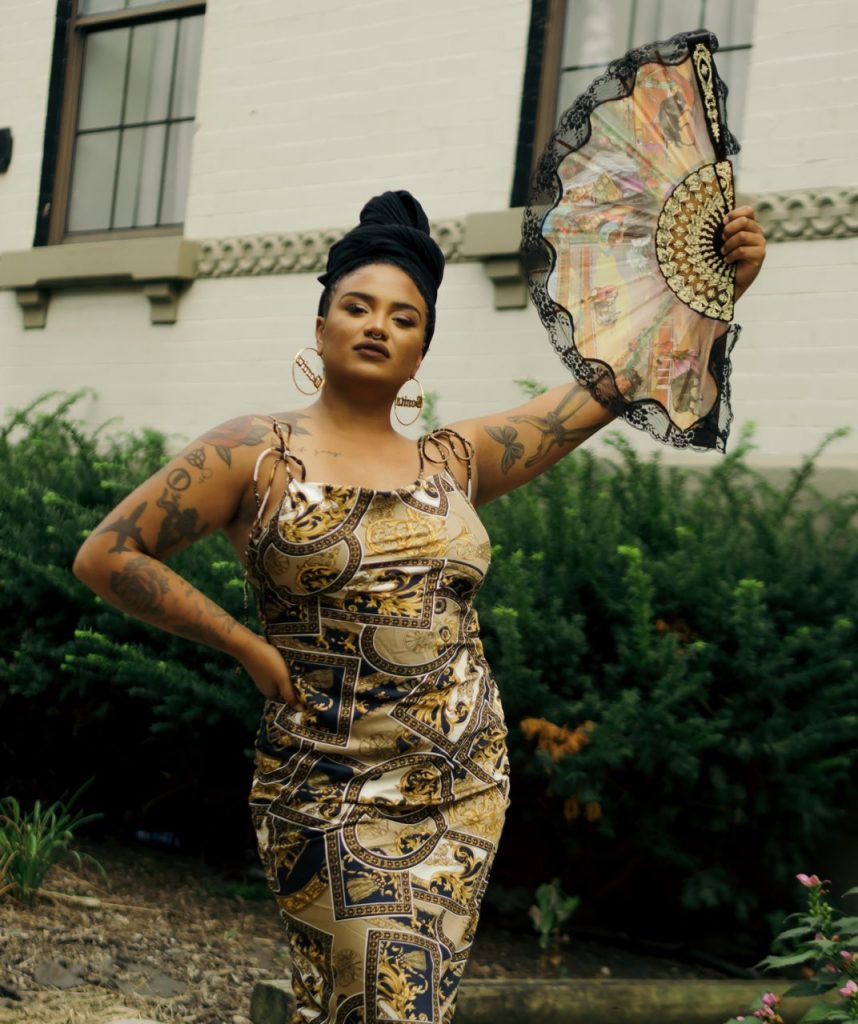
MP: Interesting. I’m not sure how many people do that anymore. Most people write from their own experiences now. So, along the vein of your music, I came across an NPR interview from back in 2018. You talk about a lot of things in there, from your Uncle Tony Saputo to being a Black woman and being put into a box, musically. In the interview you said you consider yourself a folk artist, how do you describe your music now?
TS: I mean, I don’t really know anymore. There’s just so many genres out there that it’s so oversaturated, in my opinion. I would say I have some folk elements because folk is such a broad genre. And in my definition, I am folk, but everyone would be folk, you know what I mean? Folk music is music of the people–to tell stories of the people. I’m just telling my story and stories of the people I read about.
MP: I can see that. So introduce your music to me like you’re introducing yourself. Essentially, its characteristics.
TS: I would say alternative, R&B, alternative Latin R&B, soul, potentially Indie.
MP: Do you ever feel pressure when someone like me asks you that kind of question? Do you find it irritating to describe who you are or what your music is?
TS: No, it’s not irritating. We have genres and labels for a reason, so people can discover new things and stuff. I just get overwhelmed and frustrated with myself sometimes about writing in a specific genre or sticking to a specific genre. I also just get so bored. So I don’t know. I really don’t get annoyed at the person asking. I’ll just say a different thing every time and that’s when I get frustrated at myself because, like, I told homeboy I’m this or I told homegirl I’m that, you know? That’s when I get frustrated.
MP: I can totally get that. I’m asking because I think artists these days find themselves in a similar situation. Music is more fluid than ever. The landscape, in all regards, is shifting. Or there’s just this realization that it’s been fluid forever, but labeling yourself as “fluid” doesn’t really work, hence the categories.
TS: Right. I love to tell people, “Listen to my music and you will just–honestly just listen to it,” because it will tell you the person I am. Then I’m just, like, “Y’all pick the genre because I honestly don’t know.” I like how everyone is so different today because it will force listeners to listen.
MP: Agreed. Who inspires you when it comes to your music? Who would be on your inspiration board?
TS: A lot of Black-femme authors like Audre Lorde, bell hooks, Toni Morrison, James Baldwin–not a Black-femme, but a Black author. Many of these writers have given me ideas and strength to continue with what I’m doing. As far as musicians, I want to say Alice Coltrane, Asteroid, Gilberto, Selena–just influential-ass, powerful women. It’s all over the place.
MP: I’m going back a little bit. When I went to your earlier socially-distanced show last summer, I was impressed by the audience. I mean, it’s common for local artists to pull an intimate crowd, but I was impressed by how people were so engaged with your music even if this was lke their fourth Tonina show. What do you think you do differently to connect with your fans?
TS: That’s one of the things I’m working on–the live crowd engagement. That’s the thing that is the hardest for me. I think it might be because I play so many different genres and I incorporate covers, which I know the girls love. I think I introduce people to different genres that they wouldn’t normally see, hear, or be introduced to otherwise. And you know–St. Louis is not that diverse ethnically. I think when they hear Spanish or Sicilian, it piques their interest. It’s probably my song selections, to be honest.
MP: What is your favorite song that you have written and performed?
TS: I always love performing “Smells Like Teen Spirit” because everyone in the United States and abroad knows that frickin’ song. I always love when people can sing with me. When I’m in Sicily–I usually start off the show with [“Mi votu e mi rivotu” by Rosa Balistreri]. And that’s just the best feeling ever because I feel so connected to the people. Everyone knows that song there, [Rosa Balistreri is], like, the mother of folk music there. It’s my favorite song to perform while I’m there.
MP: And one that you have written?
TS: This little tune “Ma and Pa” about my parents and growing up.
MP: Can you tell me about a time that you’re most proud of?
TS: I think I was most proud of a time, two years ago, [when I was] planning and managing a tour with me and four other guys in it. I was able to book everyone’s flight with my own money. I was able to book any hotels that weren’t paid for and just manage everybody as an artist. I was really proud of myself for putting that together and organizing everything by myself. That was in Summer, 2019.
Featured image: A photo of Tonina Saputo sitting on a rug while posing with her guitar. Photo by Danny Zones, courtesy of the musician and the photographer.

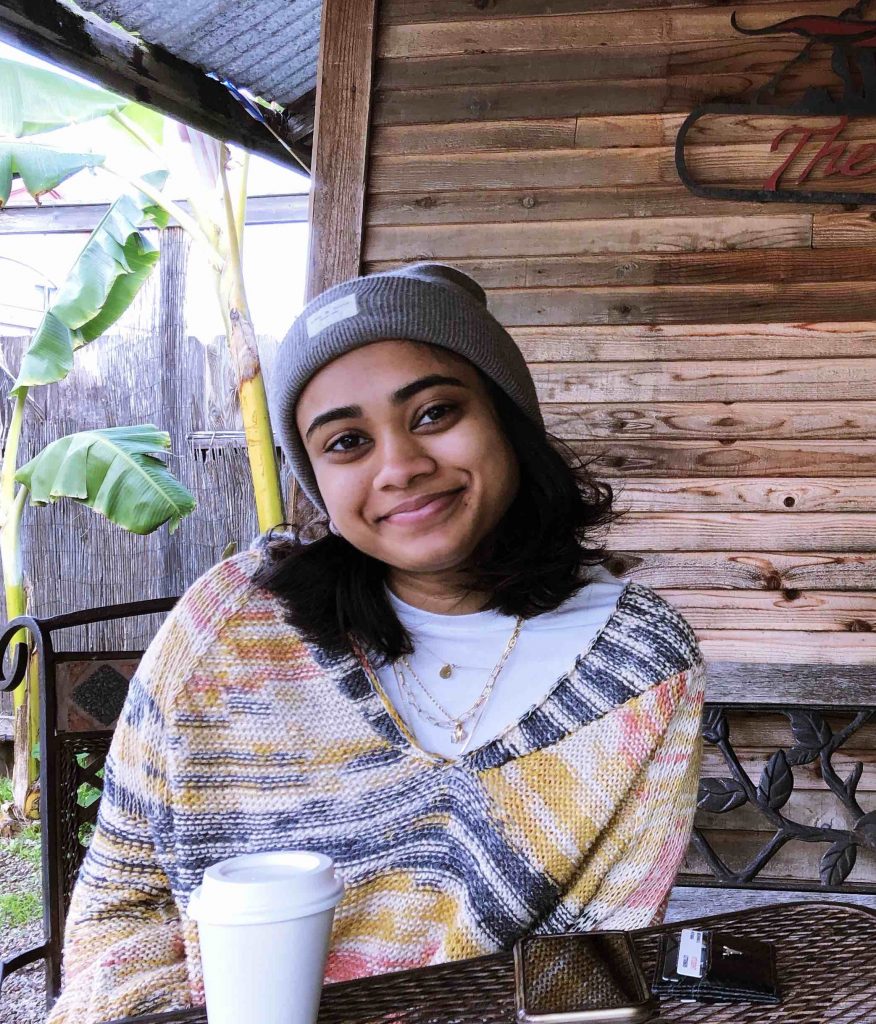
Meghana Patnana is a recent college graduate, freelance writer, and currently working on a national advocacy team, providing digital strategy for various social justice organizations. She loves interviews and profiles— with a special focus on underrepresented creatives—because she’s simply interested in people. She has a B.S. in Journalism with a concentration in Computer Science from Boston University. Twitter: meghana_patnana.
